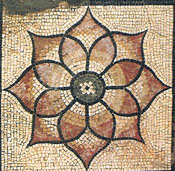The 2015 Nies Lecture: What Is “Intellectual Property,” Exactly, and How Does It Relate to Water Law?
 I’m very excited about this year’s Nies Lecture, which will be delivered by Prof. Henry Smith of Harvard Law School in just a little more than a week — Thursday, April 16th, at 4:30pm. (Register now to attend!) The title is “Semicommons in Fluid Resources,” but that only hints at the depth of the waters, so to speak, that Prof. Smith is likely to explore. As I understand it, the topic is nothing less than the nature of property itself, and how some forms of it — rights to water, and intellectual property — occupy a “middle ground” between communal governance and individual ownership. That has important ramifications for copyright law in particular, in which the dividing line between common goals and individual incentives lies at the heart of numerous doctrines.
I’m very excited about this year’s Nies Lecture, which will be delivered by Prof. Henry Smith of Harvard Law School in just a little more than a week — Thursday, April 16th, at 4:30pm. (Register now to attend!) The title is “Semicommons in Fluid Resources,” but that only hints at the depth of the waters, so to speak, that Prof. Smith is likely to explore. As I understand it, the topic is nothing less than the nature of property itself, and how some forms of it — rights to water, and intellectual property — occupy a “middle ground” between communal governance and individual ownership. That has important ramifications for copyright law in particular, in which the dividing line between common goals and individual incentives lies at the heart of numerous doctrines.
The issue is this: suppose you have some sort of resource that multiple people want to use. Say it’s a particular piece of land. As Smith has written previously, there are two basic ways of specifying rules for what people can do with that resource: you could draw lines around objects, or you could draw lines around uses. That is, you could identify a particular object, such as a plot of land, and say that one person has the right to decide all permitted uses of it. (Or that everyone has the right to decide what they will do with it, turning it into a commons, or no one does, turning it into a forbidden zone.) Alternatively, you could draw lines around uses, not objects, and say that person X has the right to engage in activity A using the piece of land in question, and spell out rules governing each person or set of persons and telling them what uses they can make of the land and which they can’t, and under what conditions.
As Smith has argued, these different methods are best viewed as lying on a spectrum.

 I am very excited to announce that this weekend, Marquette will host the
I am very excited to announce that this weekend, Marquette will host the